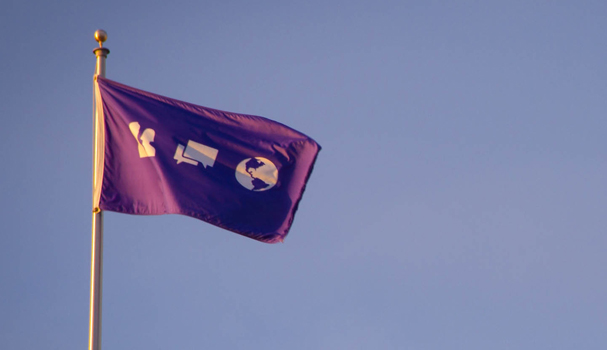The start-up world is still shaking from the news that Facebook has acquired instant messaging mobile app WhatsApp for an eye-watering $19bn. That’s a cool £11.4bn to you and me. The acquisition is Facebook’s biggest to date and has set tongues racing in the entrepreneurial community. Social media – Facebook included – is abuzz with speculation over how Facebook can possibly hope to see a return from its investment. More on that later though. First, let’s take a look at the cold, hard facts.
The super-sized deal is made up of $12bn worth of Facebook shares, $4bn in cash, and a further $3bn to WhatsApp’s founders and employees four years down the line. To put this in perspective, Simon Menashy, VC at MMC Ventures, remarked, the overall figure totals “sixteen Instagrams”. Or, rather more shockingly, as Xeni Jardin, the Wired, New York Times and Guardian journalist, noted, $3bn more than the NASA budget for 2014.
Facebook CEO Mark Zuckerberg said in a statement that the sheer reach of WhatsApp makes it an “incredibly valuable” proposition in a world where connectivity is king, signalling the seriousness of the corporation’s ambitions in the mobile space. Over 450 million currently use the service every month and it claims one million new users now sign up on a daily basis. As Zuckerberg pointed out yesterday, the app is well on-track to hit one billion users, and it looks as though that milestone could be reached within two years given the growth rate alluded to above.
Founded in 2009 by Jan Koum and Brian Acton, WhatsApp has become something of a beast in the instant messaging stratosphere. The primary attraction of the service is its incredibly low price point – free for the first year, $1 a year thereafter – which means users can connect with people in all corners of the globe without having to fork out for the cost of sending a text message. And this, in some individuals’ eyes, is the rather shrewd motivation behind the eye-watering valuation. WhatsApp’s popularity in developing countries means it has significant reach in areas that Facebook may traditionally have struggled to take as deep a hold.
It’s of little wonder, therefore, that the app has grown at the speed it has and is now outstripping competition such as BlackBerry’s popular BBM, which only recently rolled out to the iOS and Android operating platforms. We all know the fate that has befallen BlackBerry of late though.
One amusing anecdote to emerge from Facebook’s acquisition is that Acton was rejected a job at the social media giant around the time of WhatsApp’s birth. A tweet sent in 2009 certainly shows Zuckerberg might have saved himself a pretty penny by recognising the talent early on.
Facebook turned me down. It was a great opportunity to connect with some fantastic people. Looking forward to life’s next adventure.
— Brian Acton (@brianacton) August 3, 2009
Now, a little under five years later, Acton finds himself with a place on Facebook’s board of directors. In a conference call to discuss the deal, his co-founder Koum said they intend to continue to operate it “autonomously and independently”, albeit under the watchful eye of Zuckerberg and Co.
“WhatsApp’s extremely high user engagement and rapid growth are driven by the simple, powerful and instantaneous messaging capabilities we provide,” Koum added in a statement. “We’re excited and honored to partner with Mark and Facebook as we continue to bring our product to more people around the world.”
An understandably chirpy Zuckerberg also expressed his happiness with the deal. “WhatsApp is on a path to connect 1 billion people. The services that reach that milestone are all incredibly valuable,” he commented. “I’ve known Jan for a long time and I’m excited to partner with him and his team to make the world more open and connected.”
Understandably, reaction to the deal has been overwhelming, with the arteries of Twitter becoming rather clogged with WhatsApp-centred tweets.
Responses range from the positive:
WhatsApp at $19 billion. We sure live in interesting times. There ain’t no business like the internet business
— Michael Acton Smith (@acton) February 20, 2014
Both Facebook and WhatsApp are great profitable, businesses. It’s just their valuations that are nuts. Great company = great stock.
— DHH (@dhh) February 20, 2014
There are “unicorns,” and then there are unicorns with jet packs attached to diamond encrusted spaceships. Congrats to the WhatsApp team!
— Bret Taylor (@btaylor) February 20, 2014
To the cynical:
Wow Facebook buying #WhatsApp for $19 billion ! Crazy number, where’s the return? #adscoming
— Theo Paphitis (@TheoPaphitis) February 20, 2014
Facebook pay $16bn for WhatsApp, text messaging app with 450m users who pay little or no money for it. #landgrab
— Randeep Ramesh (@tianran) February 20, 2014
I assume the valuation is $9bn for the user-base & software expertise, plus $10bn to stop Google, Microsoft or WeChat buying it instead
— Dean Bubley (@disruptivedean) February 20, 2014
But, inevitably, wise-cracking has rather ruled the day:
Apparently the next version of #WhatsApp will only show you the messages it ‘thinks’ you want to read. #FacebookTakeover
— Gareth Emery (@garethemery) February 20, 2014
Facebook paid $16B for WhatsApp. I downloaded it for free. Who’s the real winner?
— I Am Devloper (@iamdevloper) February 20, 2014
Buying WhatsApp: $16B Additional stock for employees: $3B Getting to evesdrop on 450 million people’s private conversations: priceless.
— Aral Balkan (@aral) February 20, 2014
Irreverance aside, there will inevitably be much pawing over ‘what it all means’ over the coming weeks and months but it’s safe to say: this news shows we’ve hit a new high watermark in tech valuations. ![]()
Share via:








































